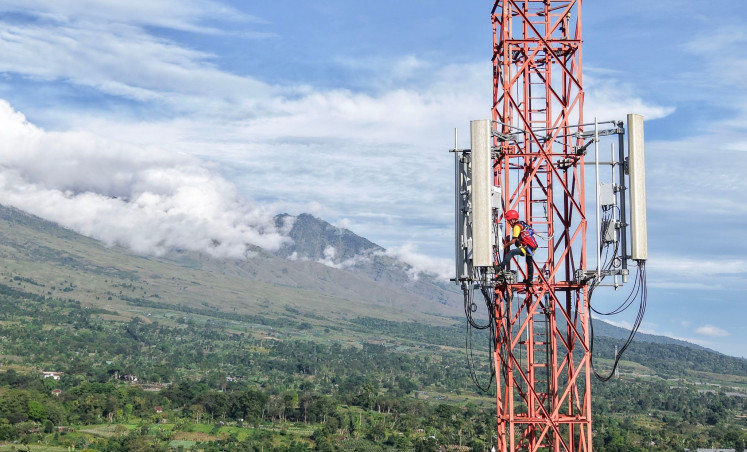Popular Reads
Top Results
Can't find what you're looking for?
View all search resultsPopular Reads
Top Results
Can't find what you're looking for?
View all search resultsCancun paves way for adaptation funding deal: RI delegation
Indonesia hailed the outcome of the Cancun climate change talks on adaptation issues, saying it would pave the way for local farmers who were suffering from poor harvests to claim for financial losses and damage
Change text size
Gift Premium Articles
to Anyone
I
ndonesia hailed the outcome of the Cancun climate change talks on adaptation issues, saying it would pave the way for local farmers who were suffering from poor harvests to claim for financial losses and damage.
The country said the decision came as Indonesia planned to push for financing on adaptation, both through the state budget and bilateral ties to help the population adapt to impacts of climate change.
“The decision comes at the right time,” Environment Minister Gusti Muhammad Hatta said on the sidelines of a plenary meeting to adopt the outcome of the Cancun conference.
Gusti, one of the heads of the Indonesian delegation to Cancun, said he held bilateral meetings with Japan, Mexico, South Korea and Switzerland to discuss climate change and the green economy.
He said South Korea and Switzerland expressed interest in helping Indonesia finance adaptation and capacity building.
The Cancun talks ended with delegates agreeing to set up a work program to address losses and damages brought about by climate change in vulnerable developing nations.
The agreement, however, fell short of Indonesia’s expectations that an international mechanism to claim for losses and damages be established.
“The outcome from Cancun lays a strong foundation for adaptation,” Haneda, Indonesia’s delegate dealing with adaptation issues, said.
“We hope upcoming climate talks will result in agreement on the establishment of an international mechanism to process the claims.”
Adaptation issues were sidelined in previous climate talks as most countries focused on mitigation efforts, which involved huge amounts of money pledged by developed nations to cut emissions.
Haneda said Indonesia needed to conduct a vulnerability study of the impact of climate change as the basis for claiming for losses and damages associated with climate change.
“Any claims we want to make for financial losses or failed harvests due to climate change must be supported by strong scientific data,” he said.
The outcome on adaptation from this latest climate change conference set a deadline of Feb. 21, 2011, for parties to submit their views to be included in a work program on adaptation.
The parties’ proposal should include, among others, the possible development of a climate risk insurance facility to address impacts associated with severe weather events and options for risk management and reduction.
Each country was also required to set up a national focal point on adaptation issues.
Indonesia also welcomed the decision to reduce emissions from deforestation and forest deforestation (REDD-plus), saying it was the best compromise to avert deadlock.
Indonesian delegate Iwan Wibisono said, however, that the outcome fell short of calls from Indonesia and others on financing issues, while Bolivia continued to reject market-based mechanisms.
“
The outcome from Cancun lays a strong foundation for adaptation.
”
“We are not 100 percent satisfied with it but the decision addressed part of our proposal,” he told the The Jakarta Post.
Bolivia is the only country of the 197 member countries at the climate change conference that rejected the Cancun outcome.
All the other parties agreed on five activities in the forestry sector that could be used to mitigate greenhouse gas emissions: reducing emissions from deforestation and forest degradation, conservation of forest carbon stocks, sustainable forest management and planting more trees.
The outcome says the implementation of REDD should address drivers of deforestation, land tenure issues, forest governance as well as ensuring the full participation of indigenous people and local communities in the process.
The REDD-plus financing mechanism are to be decided at the climate talks in Durban, South Africa, next year.
The decision also allows actions at sub-national levels to be pursued on an interim basis, which activists said would allow loggers to simply move out of protected areas and cut down tress in other areas instead of having to abide by national laws.










